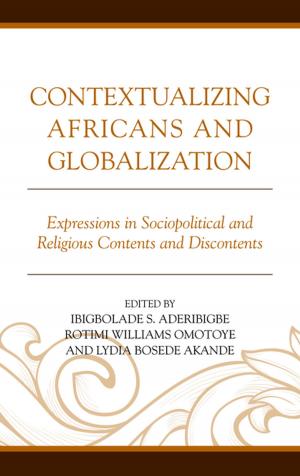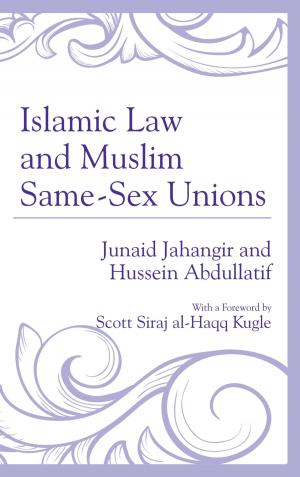Surviving with Dignity
Hausa Communities of Niamey, Niger
Nonfiction, History, Africa, Social & Cultural Studies, Social Science, Sociology| Author: | Scott M. Youngstedt | ISBN: | 9780739173510 |
| Publisher: | Lexington Books | Publication: | November 29, 2012 |
| Imprint: | Lexington Books | Language: | English |
| Author: | Scott M. Youngstedt |
| ISBN: | 9780739173510 |
| Publisher: | Lexington Books |
| Publication: | November 29, 2012 |
| Imprint: | Lexington Books |
| Language: | English |
Surviving with Dignity explores three key interconnected themes—structural violence, suffering, and surviving with dignity—through examining the lived experiences of first and second-generation migrant Hausa men in Niamey over the past two decadesin the current neoliberal moment. Colonialism, state mismanagement, structural adjustment, and global neoliberalism have inflicted structural violence on Nigeriens by denying them human and particularly socioeconomic rights and relegating them to a status at—or very near—the bottom of UN Human Development Index in each year of the past decade. As a result of structural violence, most Hausa of Niamey suffer grinding and intractable poverty that has intensified over the past two decades. Suffering is a recurrent and expected condition; it is the normal condition.The central goal of the book is to explain the material (migration and informal economy work) and symbolic (meaning-making) strategies that Hausa individuals and communities have deployed in their struggles not only to literally survive in the face of economic austerity on the outer periphery of the global economy, but also to survive with dignity. Despite daunting challenges, many Hausa men find strength and patience in their humble devotion to Islam, cherish their vibrant sociability and gracious hospitality, deeply value extraordinary conversational virtuosity and knowledge, deploy humor in complex transcendent, defensive and self-critical ways, perpetuate a sense of hope and optimism for the future, articulate their own modernities, and strive relentlessly to feel connected to the modern world at large. Extreme poverty created by socioeconomic injustice constitutes an unacceptable assault on human dignity. Hausa men’s remarkable strength does not negate the reality of the socioeconomic injustices they face. Their dire poverty in a world of plenty is unacceptable even when they handle it gracefully.
Surviving with Dignity explores three key interconnected themes—structural violence, suffering, and surviving with dignity—through examining the lived experiences of first and second-generation migrant Hausa men in Niamey over the past two decadesin the current neoliberal moment. Colonialism, state mismanagement, structural adjustment, and global neoliberalism have inflicted structural violence on Nigeriens by denying them human and particularly socioeconomic rights and relegating them to a status at—or very near—the bottom of UN Human Development Index in each year of the past decade. As a result of structural violence, most Hausa of Niamey suffer grinding and intractable poverty that has intensified over the past two decades. Suffering is a recurrent and expected condition; it is the normal condition.The central goal of the book is to explain the material (migration and informal economy work) and symbolic (meaning-making) strategies that Hausa individuals and communities have deployed in their struggles not only to literally survive in the face of economic austerity on the outer periphery of the global economy, but also to survive with dignity. Despite daunting challenges, many Hausa men find strength and patience in their humble devotion to Islam, cherish their vibrant sociability and gracious hospitality, deeply value extraordinary conversational virtuosity and knowledge, deploy humor in complex transcendent, defensive and self-critical ways, perpetuate a sense of hope and optimism for the future, articulate their own modernities, and strive relentlessly to feel connected to the modern world at large. Extreme poverty created by socioeconomic injustice constitutes an unacceptable assault on human dignity. Hausa men’s remarkable strength does not negate the reality of the socioeconomic injustices they face. Their dire poverty in a world of plenty is unacceptable even when they handle it gracefully.















